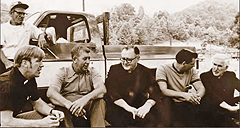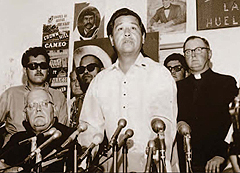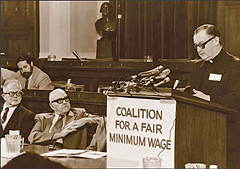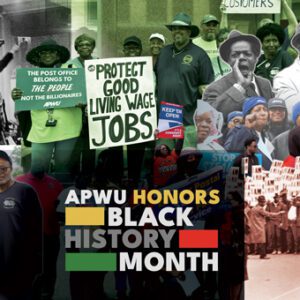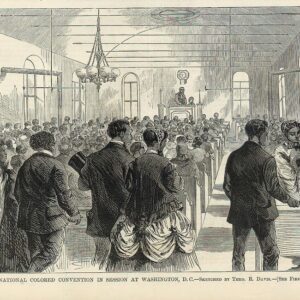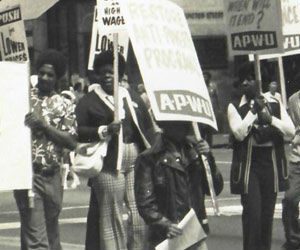August 31, 2002
(This article was first published in the September/October 2002 issue of The American Postal Worker magazine.)
From the California grape fields to the Kentucky coal mines, and in the halls of Congress, Father Higgins marched with striking workers, offered benedictions at union meetings, and tried to persuade politicians that working people deserve a fair deal.
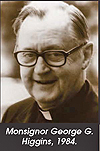
The union movement lost a dear friend when Monsignor George G. Higgins passed away on May 1st at age 86. The son of a Chicago postal clerk, Father Higgins came of age during the Great Depression and learned about the struggles of working people firsthand from family members, including pro-union uncles who worked as machinists, firefighters, and engineers.
Father Higgins completed his seminary training then earned a Ph.D. in economics by the age of 28, and he soon became known as a “labor priest,” joining the ranks of those who ministered to workers on the assembly lines and docks and in the foundries. These priests “made the unions their parishes,” he later recalled. They set up labor schools to help workers learn how to organize, and they put the Church’s social teaching to work for working people.
For nearly half a century, Father Higgins was in the forefront of the labor priests’ fight for human rights and economic justice. From the California grape fields to the Kentucky coal mines, and in the halls of Congress, Father Higgins marched with striking workers, offered benedictions at union meetings, and tried to persuade politicians that working people deserve a fair deal. “We will not have a decent society in the United States,” he often said, “until a much larger percentage of working people are organized into unions.”
“More than any other American in the 20th century,” AFL-CIO President John Sweeney said about the late priest’s contribution to the labor movement, “Msgr. Higgins argued that Christian beliefs must prominently include the notion that work must be valued and that work must be honored.”
“His preaching on Catholic social teaching educated generations of leaders within his church,” Sweeney said, “and helped them apply the justice Gospel in their own areas.”
In addition to being a leader within the Catholic Church, Father Higgins served on the boards and committees of numerous organizations that promote human rights and economic justice, including the Leadership Conference on Civil rights, the Martin Luther King Fund of the United Farm Workers, the U.S. Delegation of the Belgrade Conference on Human Rights, and the National Interfaith Committee for Worker Justice.
Two years ago, in a White House ceremony that also paid tribute to human rights activist Simon Wiesenthal and economist John Kenneth Galbraith, President Clinton honored Father Higgins’ six decades of fighting for justice for workers by awarding him the Presidential Medal of Freedom.
“Whether they are farm workers, health-care workers, poultry workers, steelworkers, immigrants, people of color, whites, Catholics, Jewish, Muslim or Protestant,” Sweeney said. “All workers owe a debt of gratitude to Msgr. Higgins.”
